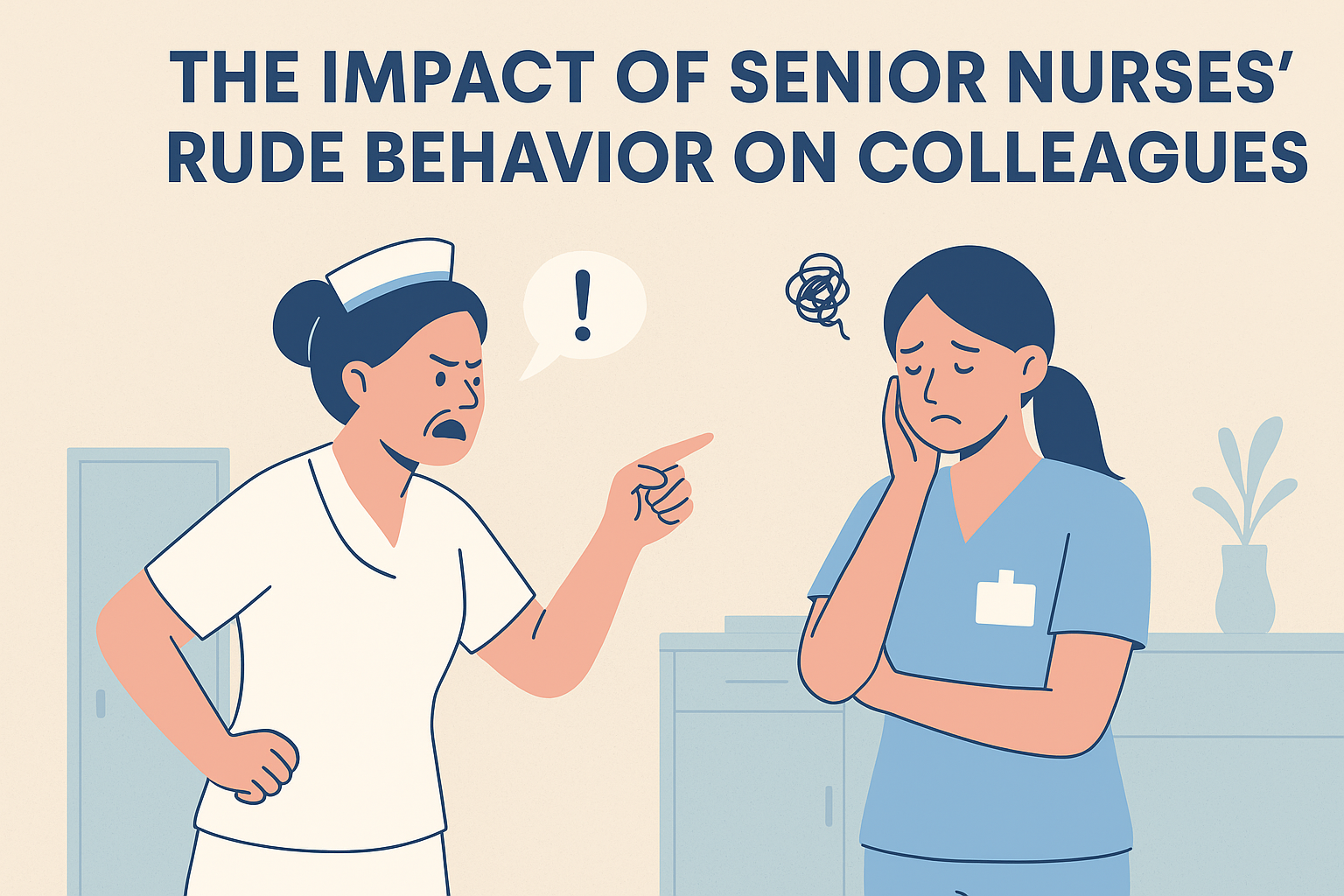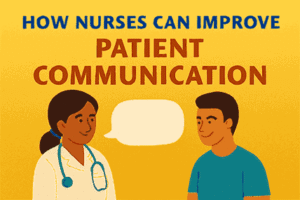Medical
Abdul Qadeer, Healthcare workplace culture, Hospital staff challenges, Nurse communication skills, Nurse-patient relationship, Nursing behavior, Nursing ethics Pakistan, Rude behavior in nursing, Senior nurses in Pakistan, Teamwork in hospitals, Workplace issues in healthcare
Abdul Qadeer
0 Comments
The Impact of Senior Nurses’ Rude Behavior on Colleagues

Introduction
In the fast-paced world of healthcare, teamwork and collaboration are vital for patient safety and smooth hospital operations. Nurses, being the backbone of healthcare, play a central role in ensuring that patients receive compassionate and timely care. However, when senior nurses exhibit unprofessional or rude behavior toward their colleagues—especially junior nurses or medical trainees—it can create a toxic environment in the ward. This issue is often overlooked, yet it has significant consequences for workplace morale, professional development, and even the quality of patient care.
This article explores how senior nurses’ rude behavior affects colleagues, why it occurs, and how healthcare institutions can address it to foster a healthier, more supportive workplace.
Why Senior Nurses’ Behavior Matters

Senior nurses often hold authority in wards due to their experience and years of service. They are expected to guide, mentor, and support junior colleagues. However, when that leadership turns into harsh criticism, dismissive attitudes, or rude communication, the ripple effects are felt across the entire team.
Instead of being sources of guidance, they may become barriers to learning and cooperation, impacting not just the staff but also the patients under their care.
Common Examples of Rude Behavior in Nursing Wards

Rude behavior can take many subtle and direct forms, such as:
-
Harsh verbal comments in front of patients or other staff.
-
Ignoring or dismissing suggestions from junior nurses.
-
Blaming colleagues for mistakes without offering constructive solutions.
-
Refusing to provide help or guidance during difficult procedures.
-
Public humiliation or questioning competence.
These behaviors may seem small in isolation but can accumulate to create a hostile work environment.
The Psychological Impact on Colleagues

1. Increased Stress and Anxiety
Nursing is already a high-stress profession. Adding interpersonal conflict into the mix only worsens the mental strain. Junior staff may feel anxious before shifts, worried about facing rude remarks or public embarrassment.
2. Reduced Confidence
Consistent exposure to rude behavior erodes self-confidence. Nurses may begin doubting their abilities, which can affect their decision-making in critical situations.
3. Burnout and Job Dissatisfaction
Over time, toxic interactions contribute to burnout. Nurses who feel unsupported or undervalued are more likely to consider leaving their jobs, leading to higher staff turnover.
4. Fear of Communication
Rude behavior discourages open communication. Junior nurses may hesitate to ask questions or clarify doubts, which could lead to errors in patient care.
Impact on Teamwork and Patient Care
The consequences of rude behavior are not limited to the nurses themselves—they also affect patient outcomes.
-
Poor teamwork: Collaboration suffers when colleagues are unwilling to engage with each other.
-
Breakdown in communication: Misunderstandings or unspoken concerns may result in medical errors.
-
Decreased efficiency: Nurses distracted by interpersonal conflict may not function at their best.
-
Lower quality of care: Ultimately, patients may receive suboptimal care when staff are stressed and demoralized.
Why Do Senior Nurses Behave Rudely?

Understanding the root causes can help in addressing the problem. Common reasons include:
-
Workplace Stress – Heavy patient loads, understaffing, and long shifts can increase irritability.
-
Hierarchical Culture – Some healthcare environments foster a culture where “seniority” means unquestioned authority.
-
Personal Insecurities – Senior nurses may feel threatened by younger, more educated colleagues.
-
Lack of Training in Leadership Skills – While they may excel clinically, some senior nurses lack training in communication and management.
Solutions: Creating a Healthier Workplace

1. Training in Communication Skills
Hospitals should provide workshops on professional communication, conflict management, and leadership skills.
2. Establishing Clear Codes of Conduct
Healthcare institutions must enforce policies against workplace bullying, making it clear that rude behavior will not be tolerated.
3. Encouraging Mentorship Programs
Pairing senior nurses with junior staff in structured mentorship can help transform authority into guidance.
4. Regular Feedback and Counseling
Management should provide anonymous channels for reporting rude behavior and offer counseling for those involved.
5. Promoting a Culture of Respect
Respect should be emphasized at every level of healthcare. Appreciation for teamwork, no matter the rank or experience, helps build unity.
The Role of Management
Hospital administrators and nursing supervisors play a crucial role in addressing rude behavior. They must:
-
Monitor staff interactions.
-
Intervene early when conflict arises.
-
Ensure fair treatment for all employees.
-
Recognize and reward positive behavior to encourage a respectful culture.
Conclusion
The rude behavior of senior nurses is not just a “personal” issue—it impacts colleagues, patients, and the healthcare system as a whole. By addressing the problem through communication training, mentorship, and supportive management policies, hospitals can create a healthier environment where every nurse feels valued.
Respect, kindness, and professionalism should define the culture of nursing. Only then can healthcare teams deliver the compassionate care that patients truly deserve.













Post Comment